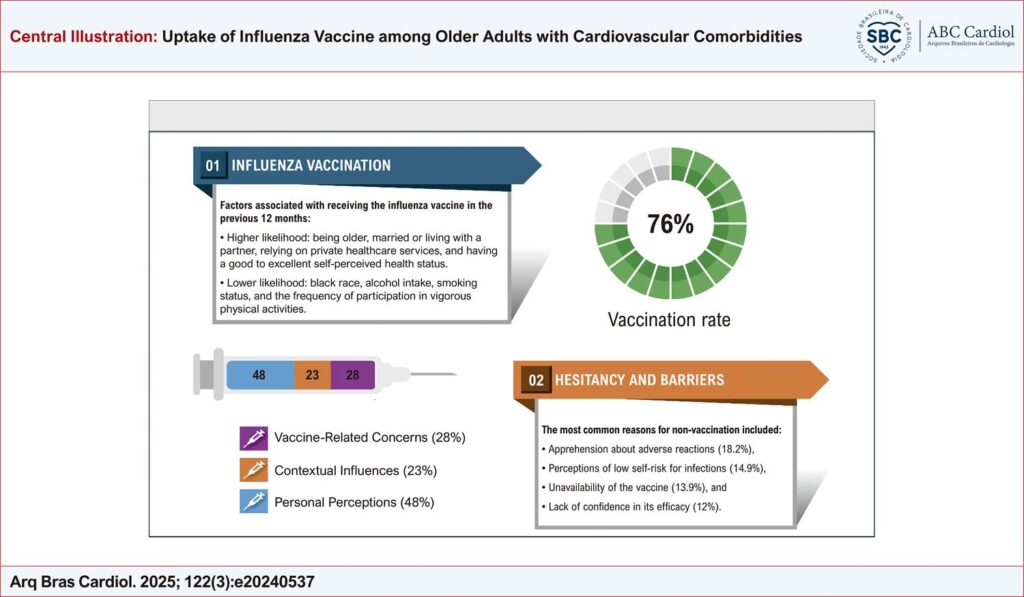Arq. Bras. Cardiol. 2025; 122(3): e20240537
Uptake of Influenza Vaccine among Older Adults with Cardiovascular Comorbidities
This Original Article is referred by the Short Editorial "Influenza Vaccine Adherence in Older Adults – Reflections and Perspectives".
Abstract
Background
Influenza vaccination reduces illness and fatality in older adults, especially those with cardiovascular comorbidities.
Objective
To investigate influenza vaccination uptake among community-dwelling older Brazilian patients with cardiovascular comorbidities.
Methods
This cross-sectional study analyzed data from the ELSI-Brazil Second wave (2019-2021), involving 9,949 older adults. Participants with cardiovascular conditions provided data on influenza vaccination from the previous year. Vaccination-associated factors were identified, with subgroup analyses for each cardiovascular comorbidity. An exploratory analysis investigated the primary reasons for non-vaccination. Statistical significance was determined with a two-sided P-value < 0.05.
Results
This study included 5,296 individuals. Of these, 76.6% reported receiving the influenza vaccine within the year before data collection. Vaccinated individuals were generally older females, widowed, and non-smokers with healthier habits and private healthcare access, although they had higher frailty and cardiovascular comorbidities. Age significantly influenced the likelihood of vaccination across subgroups. In hypertension, private healthcare and good health status increased the odds, while smoking and alcohol consumption reduced them. The most common reasons for not receiving the influenza vaccine were fear of adverse reactions (18.2%), belief in a low-risk infection (14.9%), vaccine unavailability (13.9%), and lack of confidence in its effectiveness (12%).
Conclusion
About 24% of older Brazilian adults with cardiovascular conditions remain unvaccinated against influenza, posing severe health risks. Strategies addressing personal beliefs, improving access, and enhancing healthcare provider engagement are crucial. Tailored interventions should align with the population’s demographic and health characteristics to overcome these barriers effectively.
Keywords: Aged; Cardiovascular Diseases; Human Influenza; Vaccines
434

